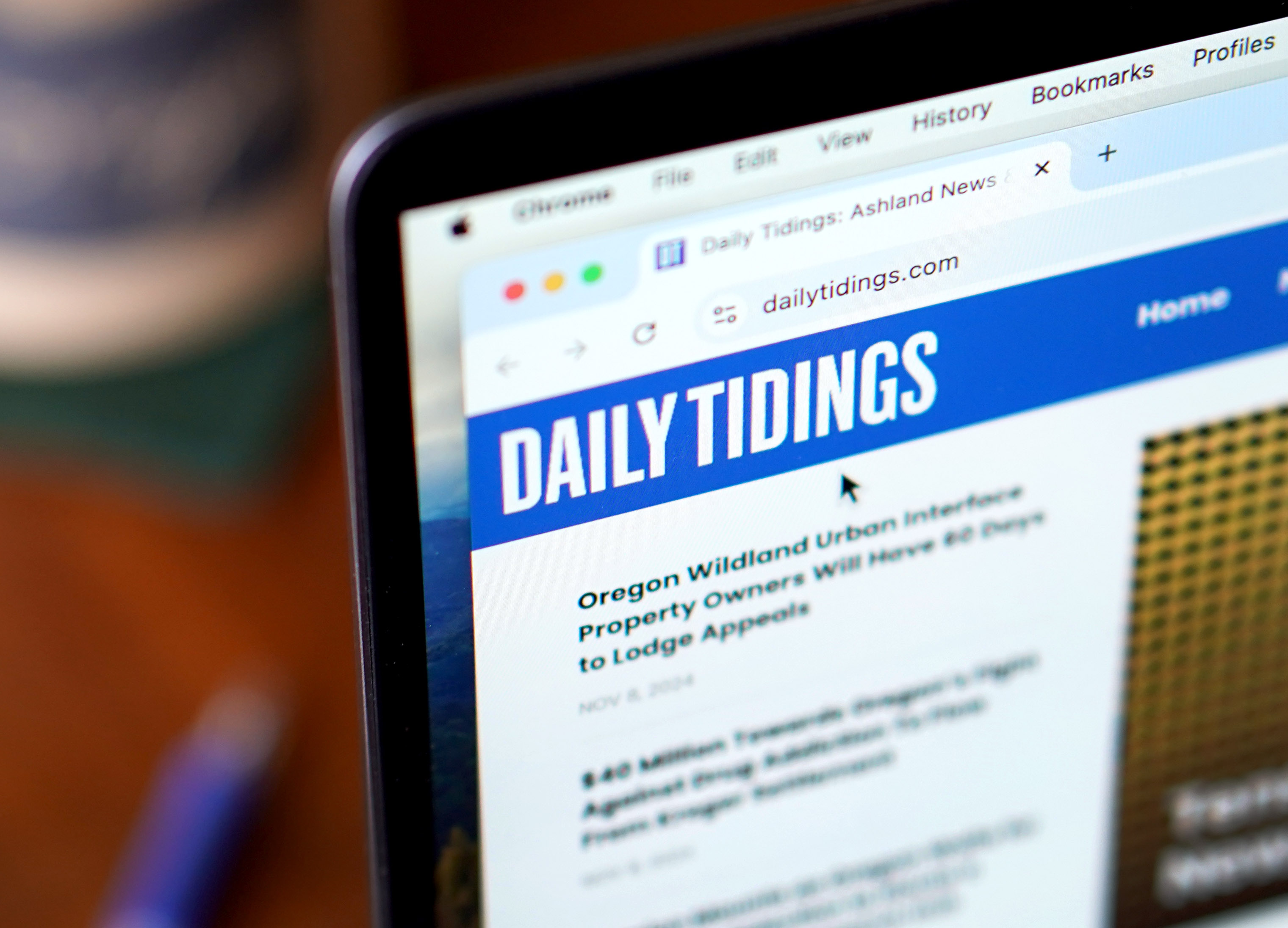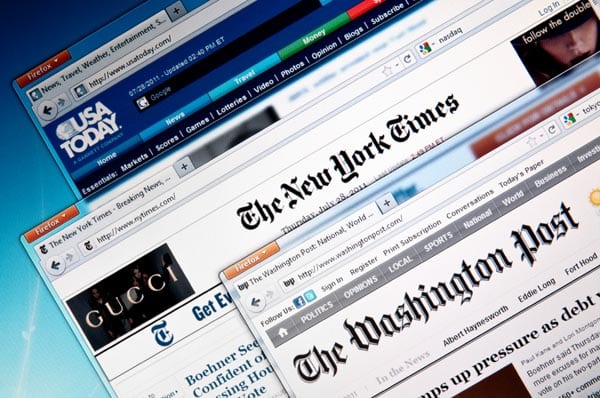Everything You Need to Know About stnews.live Before Your Next Read
Wiki Article
The Significance of Fact-Checking in the Globe of News Online
The occurrence of false information in today's online news landscape has gotten to alarming levels. Fact-checking organizations play a necessary role in combating this fad. They validate claims and enhance the reliability of journalism. The performance of these organizations usually pivots on their methods and public perception. As target markets browse this complex atmosphere, the implications of their findings may form the future of news consumption and depend on. What does this mean for the honesty of details progressing?
The Surge of Misinformation in the Digital Age
Just how has the advent of electronic innovation added to the spread of misinformation? The quick development of the web and social networks platforms has actually assisted in the dissemination of details at an extraordinary speed. Customers can share articles, videos, and opinions with a mere click, often without confirming the content's precision. Formulas prioritize spectacular or emotionally billed material, causing a proliferation of deceptive narratives that catch focus.In addition, the anonymity paid for by electronic platforms allows people to spread out incorrect details without responsibility (stnews.live). False information grows in echo chambers, where customers are exposed mainly to viewpoints that enhance their ideas, additionally entrenching frauds. The saturation of information can overwhelm individuals, making it testing to determine qualified resources from unreliable ones. Consequently, misinformation has actually come to be a pervasive problem in the digital landscape, affecting public point of view and rely on genuine news resources
The Function of Fact-Checking Organizations
Fact-checking organizations play a vital role in boosting the credibility of journalism by confirming cases made in report. Their efforts are important in combating false information, making certain that precise details dominates in the digital landscape. By holding media outlets accountable, these organizations add substantially to informed public discussion.Enhancing Reliability in Journalism
While misinformation multiplies in the digital age, fact-checking companies play a necessary duty in enhancing the trustworthiness of journalism. These companies diligently verify insurance claims made in news write-ups, public declarations, and social networks posts, guaranteeing that information shared to the public is exact and trustworthy. By supplying independent assessments, they act as an important source for journalists, aiding them preserve high criteria of integrity. Additionally, their efforts advertise transparency in media, cultivating public trust. As target markets become increasingly critical, the visibility of credible fact-checking entities can identify dependable news sources from those that might spread out falsehoods. Inevitably, the dedication of fact-checking organizations to maintain truthfulness is critical for the wellness of democratic discussion.Combating False Information Efficiently
As misinformation proceeds to spread quickly throughout digital systems, the function of fact-checking organizations becomes increasingly essential in the battle for precise information. These companies serve as guard dogs, inspecting claims made by public figures and media outlets to guarantee responsibility. By using extensive study techniques and expert analysis, they validate facts and make clear deceptive narratives. Their findings are distributed through numerous channels, enlightening the public and fostering important thinking. In enhancement, collaborations with social media platforms improve their reach, permitting prompt flagging of incorrect details. As electronic literacy grows, the impact of fact-checking organizations is crucial in equipping target markets to discern reality from fallacy, inevitably adding to a much more educated society.Exactly How Misinformation Affects Public Perception
Misinformation significantly weakens rely on media, leading target markets to question the reliability of news resources. Because of this, people commonly are attracted in the direction of electrical outlets that strengthen their existing ideas, contributing to the polarization of viewpoints. This dynamic produces a fragmented info landscape, where shared recognizing becomes increasingly hard to achieve.Trust in Media

Rely on media has actually become progressively breakable in the digital age, where the quick spread of incorrect information can alter public assumption. As misinformation proliferates throughout social media and online platforms, audiences frequently locate it challenging to discern legitimate sources from unstable ones. This unpredictability fosters uncertainty, leading many individuals to examine the objectives behind news coverage. As a result, count on developed media electrical outlets has reduced, as customers increasingly transform to different sources that may do not have strenuous editorial standards. This erosion of depend on not just affects specific ideas however likewise weakens the cumulative capacity to take part in notified conversations. Eventually, the integrity of journalism goes to stake, highlighting the vital demand for efficient fact-checking to bring back confidence in the media landscape.

Polarization of Opinions
The raising suspicion toward conventional media has contributed to an expanding polarization of point of views among the public. False information, commonly shared through social networks and on the internet platforms, plays a considerable duty in shaping unique ideological divides. People regularly look for out information that aligns with their pre-existing beliefs, strengthening their perspectives while rejecting opposing viewpoints. This echo chamber result intensifies divisions, leading to a fragmented public discourse where agreement becomes increasingly elusive. Furthermore, sensationalized stories thrive in this atmosphere, further skewing public understanding and cultivating distrust in credible sources. As polarization escalates, the requirement for effective fact-checking becomes vital to bridge spaces and advertise informed conversations, inevitably ensuring an extra natural society capable of maneuvering intricate issues.Strategies for Efficient Fact-Checking
Efficient fact-checking depends on an organized technique that consists of comprehensive study, confirmation of sources, and important analysis of claims. A fundamental technique is cross-referencing information from numerous reliable sources to confirm its accuracy. Fact-checkers commonly utilize specialized databases and archives to map linked here the origin of particular statements, ensuring that the reported info lines up with recorded evidence.An additional crucial technique involves looking at the context in which claims exist. Misleading information can occur from out-of-context quotes or discerning information usage. By taking a look at the wider narrative, fact-checkers can determine possible biases or misinterpretations.
In addition, engaging with professionals in relevant areas can provide clearness and understanding that boosts the fact-checking procedure. This collaboration can reveal nuances that laypeople might neglect - stnews.live. Eventually, a self-displined approach incorporating these methods fosters a more informed public, boosting the reliability of details distributed in the electronic age
The Influence of Social Media Site on News Usage
How has social media changed the way individuals eat news? The appearance of systems like Facebook, Twitter, and Instagram has notably altered news usage patterns. News is now distributed rapidly, allowing individuals to gain access to real-time updates and engage with material with likes, shares, and comments. This immediacy has promoted a choice for bite-sized details, often at the expense of thorough evaluation.Additionally, social media sites makes it possible for customized news feeds, where formulas curate content based upon customer preferences, developing echo chambers that might limit direct exposure to diverse point of views. The role of conventional news outlets has diminished as individuals significantly rely upon peer referrals and trending topics. As a result, the credibility of details is commonly compromised, as sensationalism can outweigh accurate reporting. In general, social media sites has actually improved news usage, emphasizing speed and personalization while challenging the requirements of journalistic integrity.
Equipping Audiences to Determine Trusted Resources

Additionally, checking out the authorship and organizational background of news short articles can expose possible biases. Cross-referencing info across numerous trustworthy electrical outlets additionally enhances the confirmation procedure. Making use of electronic devices, such as browser expansions that rate the integrity of websites, can likewise help in recognizing reliable info. By proactively involving with these sources and cultivating an essential frame of mind, target markets can better outfit themselves to recognize dependable news resources, ultimately cultivating a much more informed society in the middle of the complexities these days's media environment.
The Future of Journalism and Fact-Checking
As the media landscape develops, the click over here now future of journalism and fact-checking encounters both tests and possibilities. The rise of electronic systems has actually democratized details dissemination, permitting varied voices to arise. However, this has actually also caused the expansion of false information, necessitating robust fact-checking systems. Reporters will significantly depend on technology, including AI devices, to verify truths quickly and effectively.Collaboration in between wire service and fact-checking entities is prepared for to reinforce integrity and openness. In addition, target market engagement will play an important role, as informed viewers end up being considerable partners in recognizing trustworthy web content.
The need for liability and precision is likely to grow, pressing reporters to promote high criteria in their reporting. Eventually, the future of journalism may rest on its capability to adjust to technological developments while maintaining journalistic stability, making certain that fact-checking remains a keystone of credible news.
Often Asked Concerns
Exactly How Can I Report Misinformation I Experience Online?
To report misinformation encountered online, people can click for info utilize platform-specific coverage devices, supply clear proof, and share the info with fact-checking organizations. Involving with area discussions can likewise aid raise recognition about the false information.What Are Usual Signs of False Information in News Articles?
Common indications of misinformation in newspaper article consist of marvelous headlines, lack of trustworthy sources, psychological language, inconsistent truths, and lack of author credentials. Viewers should seriously examine material for these indicators to discern accuracy.How Do Fact-Checkers Verify Sources?
Fact-checkers confirm sources by cross-referencing details with qualified databases, getting in touch with experts, and checking out the initial context of cases. They likewise evaluate the integrity of the resources, making sure exact and trustworthy info for public consumption.What Lawful Activities Can Be Taken Versus Misinformation?
Legal actions against misinformation may include defamation legal actions, cease-and-desist orders, and governing penalties. Targets can seek remedy via civil courts, while some jurisdictions enforce penalties or sanctions on systems disseminating false information.Are There Apps for Fact-Checking News On-The-Go?
Countless applications exist for fact-checking news on-the-go, including Snopes, FactCheck.org, and PolitiFact. These applications aid users validate insurance claims quickly, advertising notified decision-making and promoting a more critical approach to consuming news in real-time.Report this wiki page